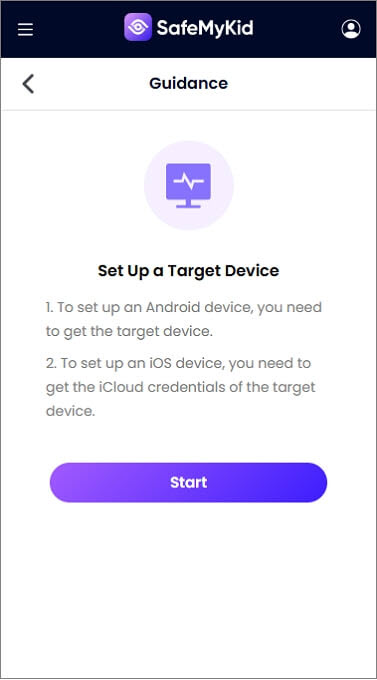What Questions to Ask a Cheating Husband: 7 Essential Conversation Topics

Discovering infidelity in your marriage creates an immediate need for answers, making what questions to ask a cheating husband is critically important for both emotional clarity and practical decision-making about your future.

By approaching these difficult conversations with purpose and emotional intelligence, you can gather the information needed to process the betrayal and make informed decisions about whether to work toward reconciliation or separation.
Why Asking The Questions to a Cheating Husband Matters after Infidelity
Before diving into specific questions to ask a cheating husband, understanding why certain inquiries matter more than others helps create a foundation for productive conversations during this emotionally turbulent time.
The questions you choose to ask serve multiple purposes beyond just information gathering. They help you process emotional trauma, establish boundaries for potential reconciliation, identify patterns of deception, and create clarity about the true nature of the infidelity.
Carefully considered questions allow you to:
- Gain factual clarity about the scope and nature of the betrayal
- Begin processing complex emotions through understanding
- Assess genuine remorse versus manipulative responses
- Determine if trust rebuilding is possible in your specific situation
- Make informed decisions based on comprehensive information rather than assumptions
Approaching these conversations with strategic questions rather than unfocused emotional reactions creates a pathway through the initial chaos of discovery toward greater clarity, regardless of your ultimate relationship decision.
7 Essential Categories of Questions to Ask a Cheating Husband

These focused question categories help structure your conversations productively while ensuring you gather the information needed for emotional processing and decision-making.
1. Questions about the Affair Timeline and Scope
Understanding the basic factual parameters of infidelity provides crucial context for processing what occurred and evaluating the extent of the deception involved.
Effective timeline and scope questions to ask a cheating husband include:
- "When did this relationship begin, and how did it develop?"
- "How frequently were you in contact with this person?"
- "Is this the only instance of infidelity during our marriage?"
- "Where did meetings take place, and how were they arranged?"
- "When was the last contact, and what was the nature of that interaction?"
- "Were there other people who knew about this relationship?"
These questions to ask a cheating husband uncover the scale of betrayal and form the foundation for deeper conversations.
These factual questions establish the basic reality of what occurred, helping overcome denial and creating a shared understanding of the timeline that can be referenced in subsequent conversations.
2. Questions about Emotional Involvement
The emotional dimension of infidelity often causes as much or more damage than physical betrayal, making questions about emotional connection essential when discussing infidelity with your husband.
Important emotional involvement questions to ask include:
- "What emotional needs was this relationship fulfilling that you felt were missing?"
- "How would you describe your feelings toward this person?"
- "Did you confide in this person about our relationship problems?"
- "Were there plans or discussions about a future together?"
- "Did you compare me to this person either verbally or mentally?"
- "Do you still have feelings for this person now?"
These questions help reveal the depth of the emotional betrayal and provide insights into relationship vulnerabilities that may have contributed to the affair's development.
Understanding the emotional component helps distinguish between purely physical indiscretions and deeper emotional affairs that may represent more significant threats to the marriage's foundation.
3. Questions about Honesty and Full Disclosure
Determining whether you're receiving complete honesty after discovery is crucial, as partial truths and continued deception make healing impossible and undermine any potential reconciliation efforts.
Essential honesty assessment questions to ask a cheating husband include:
- "Is there anything else I should know that you haven't told me yet?"
- "Have you been completely honest about the extent of this relationship?"
- "What parts of this situation are hardest for you to tell me about?"
- "Are there other betrayals or issues I'm still unaware of?"
- "How can I believe what you're telling me now given the deception that's occurred?"
- "What questions are you hoping I won't ask you?"
These questions help establish whether your husband is committed to complete transparency, which represents a non-negotiable foundation for any potential trust rebuilding.
Pay close attention to non-verbal cues, hesitations, and inconsistencies during these questions, as they often reveal continued deception more clearly than the verbal responses themselves.
4. Questions about Contributing Factors
Understanding the context and contributing factors helps process why the infidelity occurred, though these questions should never be framed or interpreted as justifying the betrayal.
Insightful contributing factor questions include:
- "What do you believe made you vulnerable to this situation?"
- "Were there specific problems in our marriage that contributed to your decision?"
- "What were you telling yourself that made this behavior seem acceptable?"
- "Were there warning signs or vulnerable moments you recognize in retrospect?"
- "How did you justify this behavior to yourself during the affair?"
- "What personal issues or patterns do you think influenced your choices?"
Such questions to ask a cheating husband help you grasp the context, which is crucial whether you're considering staying or leaving.
These questions help identify relationship vulnerabilities without accepting them as excuses, creating potential pathways for addressing underlying issues if reconciliation is attempted.
5. Questions about Genuine Remorse
Distinguishing between authentic remorse and regret over being caught represents one of the most crucial assessments when questioning a cheating husband about infidelity.
Questions that help evaluate genuine remorse include:
- "What do you think the impact of your actions has been on me and our family?"
- "What specific actions have you taken independently to address this situation?"
- "How do you feel about the pain your choices have caused?"
- "What would meaningful amends look like from your perspective?"
- "What changes are you willing to make to prevent this from happening again?"
- "How do you plan to rebuild trust given what has happened?"
These questions help reveal whether your husband truly grasps the damage caused and accepts responsibility for his actions, which indicates potential for authentic change rather than temporary behavior modification.
Listen for responses that demonstrate empathy for your pain versus self-focused concerns about consequences or inconvenience, as this distinction significantly impacts reconciliation possibilities.
6. Questions about Future Commitment
Assessing genuine commitment to the marriage moving forward provides essential information for determining whether reconciliation efforts might be worthwhile or whether separation represents the healthier path.
Critical commitment assessment questions include:
- "Why do you want to remain in this marriage?"
- "What specific actions are you willing to take to rebuild trust?"
- "Are you prepared for the difficult work of reconciliation if I choose that path?"
- "What boundaries and changes would you implement to prevent future betrayal?"
- "How will you respond to my questions and emotional reactions in the coming months?"
- "What does commitment mean to you now, given what's happened?"
These questions help evaluate whether your husband recognizes the substantial effort required for reconciliation and is genuinely committed to that challenging process.
Be particularly attentive to answers that demonstrate an understanding of the long-term nature of rebuilding rather than expectations of quick forgiveness or immediate return to normalcy.
7. Questions about Your Needs and Boundaries
The final essential category involves questions that help clarify your own needs and establish necessary boundaries moving forward, regardless of whether reconciliation or separation ultimately occurs.
Self-advocacy questions to consider include:
- "What do I need to feel safe in this relationship again?"
- "What specific transparency measures would help me rebuild trust?"
- "What boundaries must be non-negotiable moving forward?"
- "What support resources do I need during this process?"
- "What timeline feels reasonable for making decisions about our future?"
- "What consequences should follow if deception occurs again?"
These questions to ask a cheating husband show whether he's willing to do the hard work of rebuilding your marriage.
While some of these questions may be directed internally rather than to your husband, they help establish your essential requirements for continued relationship investment.
SafeMyKid - The Best Verification Tool to Catch A Cheating Husband

While questions provide essential verbal information, many couples find that trust rebuilding after infidelity requires verification tools during the initial recovery period.
SafeMyKid offers a comprehensive monitoring solution that provides peace of mind during this vulnerable rebuilding phase.
Though originally designed for parental monitoring, SafeMyKid's discrete tracking capabilities make it equally valuable for couples working through infidelity, providing transparency that supports trust rebuilding when implemented as part of a mutual reconciliation agreement.
The application works across both Android and iOS devices, providing location verification, communication monitoring, and digital activity tracking that can help confirm whether new commitments are being honored during the critical early stages of reconciliation.
Key Features of SafeMyKid to Catch A Cheating Husband
When rebuilding trust after infidelity, SafeMyKid offers several features, particularly valuable for relationship verification:
Location Tracking - Verify whereabouts with real-time updates that confirm whether your husband is where he claims to be during the trust-building process.
Communication Monitoring - Access call logs and message histories to ensure that inappropriate contact has truly ended as promised during reconciliation.
Social Media Surveillance - Monitor digital activities across platforms where affairs often develop to verify that boundaries are being respected.
Stealth Operation - Works invisibly without performance impact to maintain appropriate monitoring without creating additional relationship tension.
Remote Dashboard Access - Monitor all verification data from anywhere through a secure online control panel with intuitive data presentation for easy checking.
These verification capabilities provide objective evidence that supports the verbal promises made during your conversations about rebuilding trust after infidelity.
How to Set up SafeMyKid to Catch A Cheating Husband
Implementing SafeMyKid as part of a mutual trust-rebuilding agreement involves a few straightforward steps:
Step 1. Create Your SafeMyKid Account
Visit the SafeMyKid website to register and create your monitoring account.

Step 2. Set up The SafeMyKid Application
For Android: Install SafeMyKid directly on the target device as part of your transparency agreement. For iOS: Use iCloud credentials to enable monitoring through cloud access.

Step 3. Use SafeMyKid to Catch A Cheating Husband
Access your secure dashboard to verify location, communications, and digital activities as part of your trust-building process.
When used as part of a mutual agreement during reconciliation, SafeMyKid provides the verification tools many couples find necessary during the vulnerable early stages of rebuilding trust after infidelity.

How to Approach Difficult Conversations about Cheating Husband

Knowing what questions to ask a cheating husband is only half the battle. How you ask them also matters.
Beyond specific questions, how you structure these challenging conversations significantly impacts their productivity and your emotional well-being.
1. Creating the Right Environment for Discussion
The setting and timing of conversations about infidelity significantly impact their effectiveness and your ability to process the information received.
For productive discussions:
- Choose a private location free from interruptions or time constraints
- Select times when both parties are relatively calm rather than highly emotional
- Avoid locations with significant personal meaning or public exposure
- Ensure basic physical comfort regarding seating, temperature, etc.
2. Managing Your Emotional Responses
While emotional reactions are natural and valid when discussing infidelity, having strategies to manage overwhelming feelings helps maintain productive communication.
Helpful emotional management approaches include:
- Taking brief timeouts when emotions become overwhelming
- Using simple grounding techniques like deep breathing or sensory awareness
- Preparing phrases to use when you need a momentary pause
- Having support people available before and after difficult conversations
3. Documenting Information for Processing
During emotionally charged conversations, memory often becomes unreliable, making documentation of key information valuable for later processing and decision-making.
Consider these documentation approaches:
- Taking brief notes during or immediately after conversations
- Recording sessions if mutually agreed upon for later review
- Summarizing key points in writing to confirm shared understanding
- Creating timeline documents for complex factual information
Frequently Asked Questions about Questioning a Cheating Husband
Understanding answers to these common questions can help navigate these difficult conversations more effectively.
1. Should I ask for explicit details about physical intimacy?
Whether to ask for intimate details depends entirely on your personal processing needs. Some individuals find that specific information helps eliminate painful imagination and speculation, while others find that explicit details create intrusive mental images that complicate healing.
2. How can I tell if my husband is being completely honest?
Evaluating honesty involves observing both verbal and non-verbal indicators across multiple conversations. Watch for consistency in the narrative over time, as fabrications typically contain inconsistencies when revisited. Note if answers become defensive or evasive with specific topics.
3. How many conversations should I expect to have about the infidelity?
Processing infidelity typically requires multiple conversations over an extended period rather than a single discussion. Initially, focus on establishing basic facts and immediate safety concerns.
As emotions stabilize, deeper conversations about contributing factors and relationship patterns become possible.
4. Should I ask these questions all at once or spread them out?
Spreading questions across multiple conversations generally proves more effective than attempting to address everything at once. Emotional overwhelm affects both parties during extended confrontations, reducing information quality and processing ability.
5. What if my husband refuses to answer certain questions?
When facing resistance to specific questions, first try to understand the reason for reluctance. Is it shame, fear of your reaction, concern about relationship consequences, or continued deception? Express why the information matters to your healing process rather than simply demanding answers.
Conclusion
Knowing what questions to ask a cheating husband creates a pathway through the initial chaos of infidelity discovery toward greater clarity and informed decision-making.
Remember that these questions serve multiple purposes beyond just information gathering——they help process emotional trauma, establish necessary boundaries, evaluate genuine remorse, and determine whether reconciliation efforts might be worthwhile in your specific situation.


